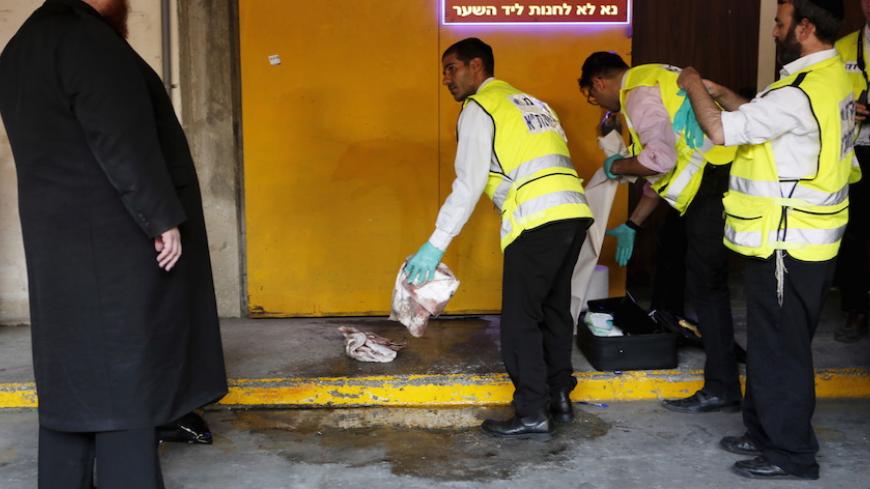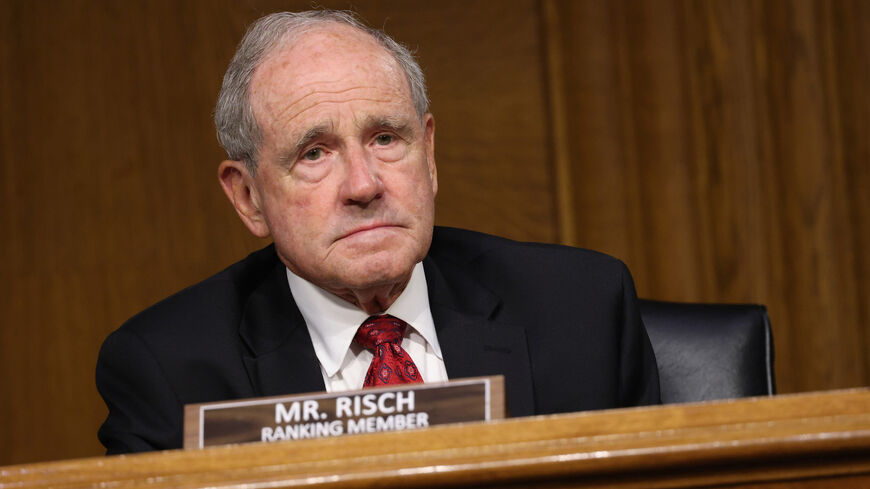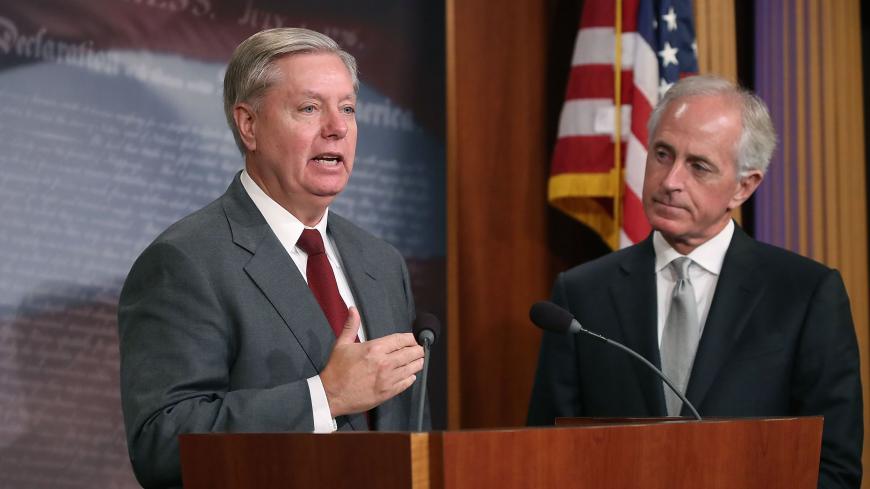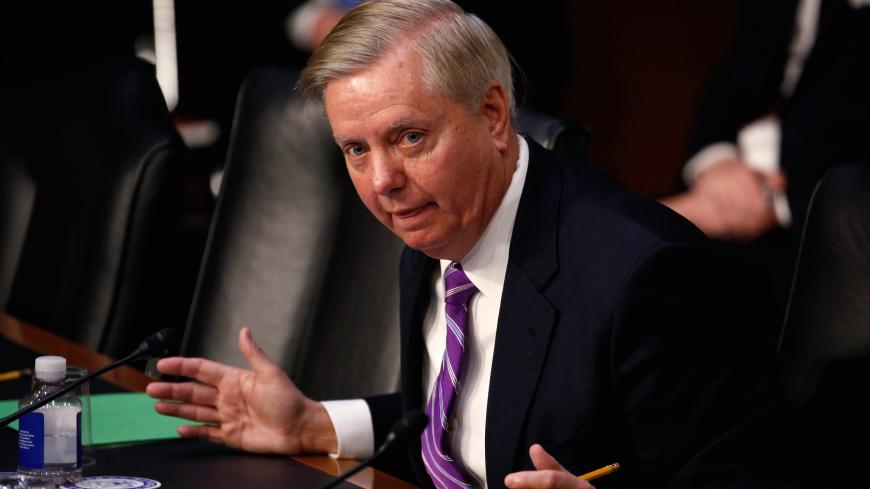Palestinian Authority ends ‘martyr’ payments in possible gesture to Trump
The Palestinian Authority has paid millions of dollars to families of assailants who have attacked Israelis in recent years, drawing scrutiny from the United States and from victims of the attacks.
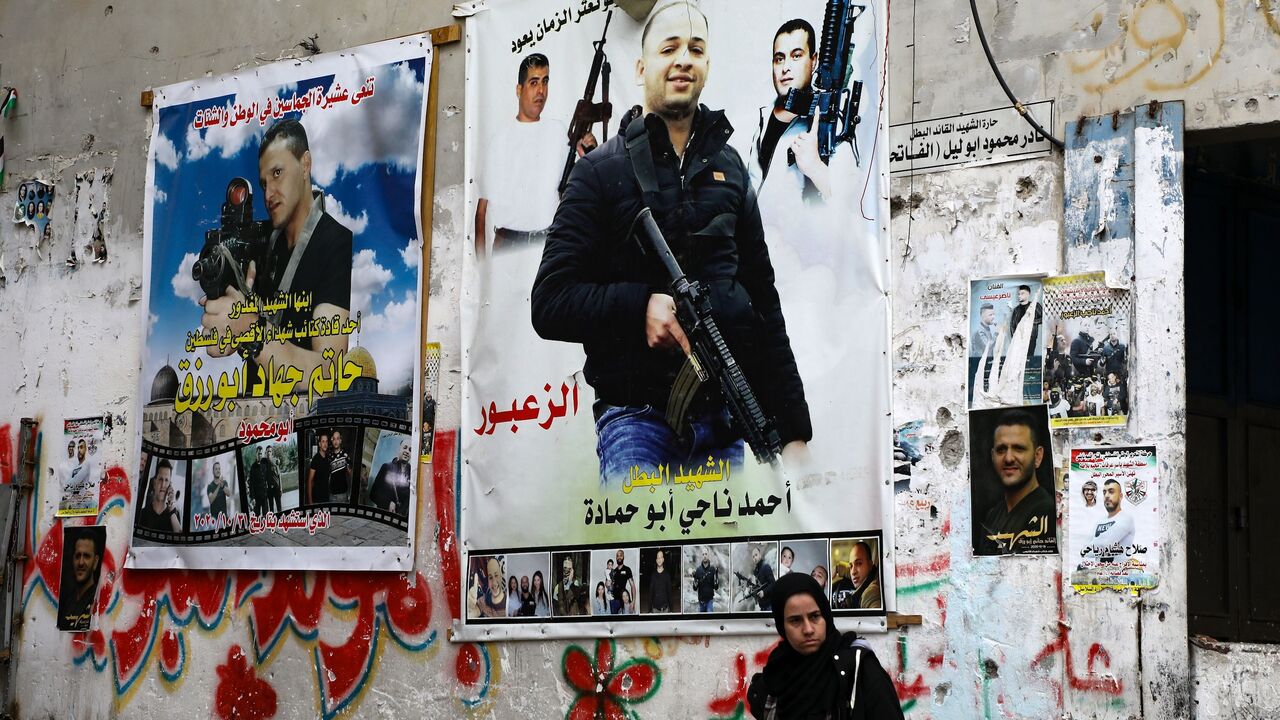
Palestinian President Mahmoud Abbas said he would abolish the system of payments to Palestinian militants and their families for attacks against Israelis, a move widely seen as a goodwill gesture toward the Trump administration.
Abbas issued a decree Monday revoking laws “related to the system of paying financial allowances to the families of prisoners, martyrs and the wounded,” the Palestinian Authority’s WAFA news agency reported.
The system will be transferred to the jurisdiction of the Palestinian National Foundation for Economic Empowerment. Individuals that benefited from the previous laws on the matter will still be eligible for assistance based on “need of social welfare,” according to WAFA.
"All families that benefited from previous laws, legislation and regulations are subject to the same standards applied without discrimination to all families benefiting from protection and social welfare programs," read the WAFA report.
The Palestinian Authority operates a "martyrs fund" that doles out cash to the families of Palestinians killed or injured in attacks against Israel and Israelis, as well as another fund that pays the families of Palestinians imprisoned by Israel.
The PLO, a nationalist coalition headed by Abbas, established the martyrs fund in 1967. The Palestinian Authority took up responsibility for the payments after its formation in 1994. The authority argues the funds help victims of the Israeli occupation, while Israel says the payments glorify violence.
The Palestinian Authority paid out $176.8 million under the program in 2023, according to a January report from the Jerusalem Center for Security and Foreign Affairs, an Israeli think tank.
The level of compensation depends on the size of the assailant's family, the duration of their prison sentence and other factors.
Why it matters: The Palestinian Authority’s payments to militants, dubbed “pay for slay” by critics, have long been scrutinized by many in the US Congress. In July of last year, a group of Republicans and Democrats in both chambers introduced the PLO and Palestinian Authority Terror Payments Accountability Act of 2024, which would sanction individuals allegedly responsible for facilitating the payments. The bill was referred to the House Foreign Affairs Committee that month and has not been advanced further.
Republican Sen. Jim Risch of Idaho held up tens of millions of dollars in aid to the Palestinian Authority in 2021 over its policy.
US President Donald Trump has been critical of the authority over the issue. In 2018, he signed into law the Taylor Force Act, which prohibited economic aid to the authority over the payments. The act was named after a US military veteran who was killed by a Palestinian assailant in Tel Aviv in 2016.
Later that year, the Trump administration cut more than $200 million in funding to Ramallah, saying the money would be redirected to "high priority projects elsewhere." The aid was later restored by US President Joe Biden in 2021.
Abbas’ decision could curry favor with the Trump administration at a critical moment. Last week, the administration initiated an overhaul of USAID, the government’s main agency responsible for humanitarian aid. The agency said in November that it had provided more than $600 million in economic support to Palestinians since 2021.
Relations between the Palestinian Authority and the United States were rocky during Trump's first term. Abbas cut ties with the United States in 2020 in opposition to Trump's peace proposal for the Israeli-Palestinian conflict. The plan proposed Israel annexing settlement blocs in the occupied West Bank and a demilitarized Palestinian state almost entirely under Israeli security control.
Meanwhile, Abbas sent a letter to Trump in July after the assassination attempt against the latter. Trump called the gesture "so nice" in response.
The Palestinian Authority is currently seeking to reestablish its authority over Gaza amid the ceasefire between Israel and Hamas. In January, Abbas said the authority is ready to assume "full responsibility” over the enclave after the war.
Trump is currently pushing a plan to remove Palestinians from Gaza and for the United States to “buy” the territory. The proposal has been widely condemned by Palestinian and regional officials.
Know more: American victims of attacks by Palestinian assailants have long sought to sue the authority and the PLO over the martyrs fund. US courts have ruled in the past that the PLO and the authority are outside of their jurisdiction.
Last week, the American Jewish Committee called on the Supreme Court to allow American victims of the attacks to sue for damages in US courts.
In December, the US Supreme Court said it would rule on Fuld vs. Palestine Liberation Organization, a case related to whether such US courts have jurisdiction over attempts to sue the PLO.

